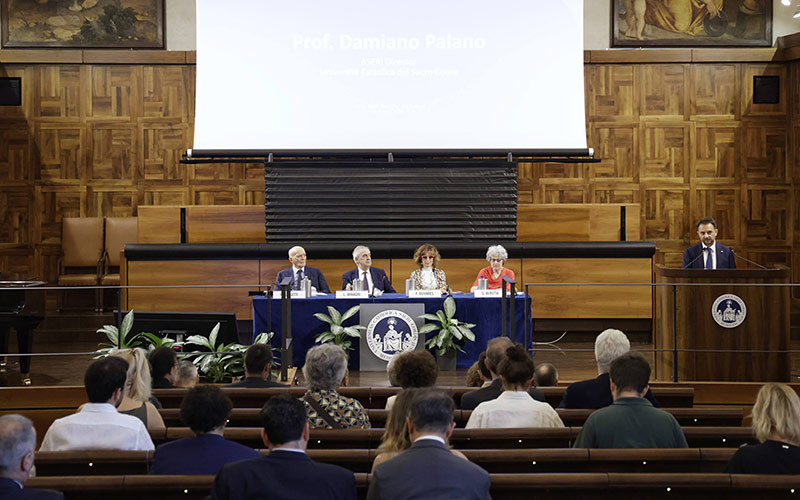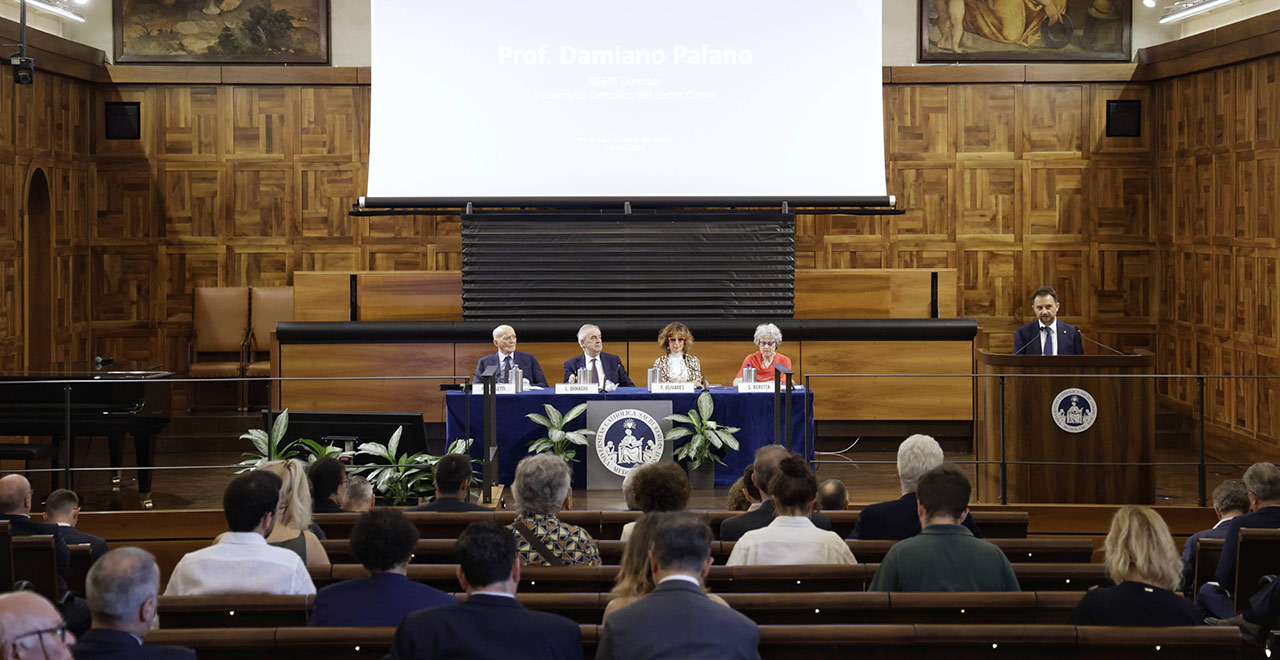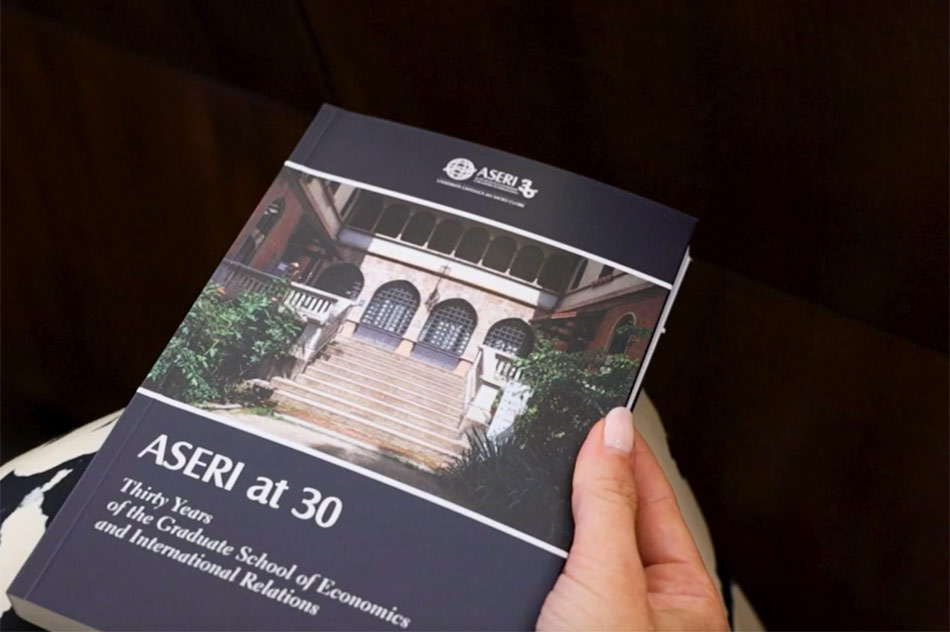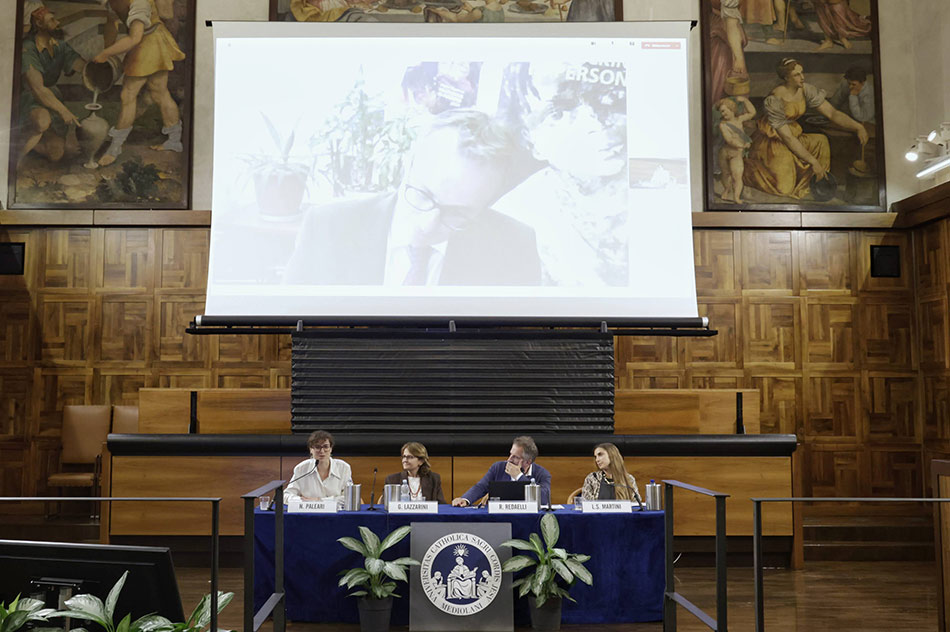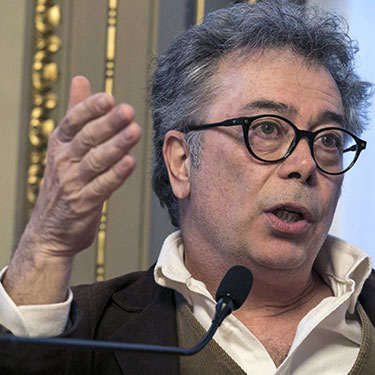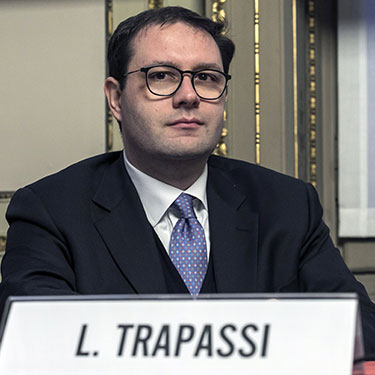Some of the protagonists of the birth of Aseri, who participated in the debate moderated by Simona Beretta, Director of the Master in International Cooperation, also gave voice to the changes of this thirty-year period. Among them was Lorenzo Ornaghi, Honorary President of Aseri and first director of the High School. "Thirty years later, we have realised that there has been no triumph of democracy, which ‒ like all political regimes ‒ is fragile,” observed Professor Ornaghi. “The real danger is represented by polarised and brittle Western societies”, and by the fact that we are ‘culturally unprepared’ to understand the causes, with a ‘power of events’ that highlights all our ‘impotence’. Therefore, he concluded, the question that was valid then still applies: how to make the desire and expectations of young people as free as possible. And this is only possible by providing them with a ‘method for knowing reality’ that allows them to enter, as Father Gemelli said, into the ‘heart of reality’, thus building a ‘patrimony of ideas’ to avoid falling into the ‘traps of current rhetoric’ and ‘dominant thoughts’.
Piero Bassetti, at the time President of the Milan Chamber of Commerce, praised the far-sightedness of Università Cattolica, which was able, with its ‘sensitivity’, to grasp the signs of global change in good time. It is no coincidence that Federica Olivares, Director of the Master Programme in Advanced Public and Cultural Diplomacy for International Relations, compared Aseri to a true ‘incubator of innovation and imagination’, testified by its willingness to contemplate a master programme dedicated to cultural diplomacy in its rich educational offer. In a video message, Vittorio Emanuele Parsi, Aseri’s Director for twelve years, referred both to the Graduate School’s ability to rapidly transform itself to keep up with the times and to the role of the many alumni who have attended it, many of whom hold top positions. Just like Giovanna Lazzarini, Maria Stella Martini, Nadia Paleari and Fabrizio Sarrica, who talked about the decisive role of the training programme in their professional careers in a panel moderated by Riccardo Redaelli, Director of the Master Programme in Middle Eastern Studies.
But the day of 4 July provided valuable food for thought on the uncertainty of the current context with the help of two exceptional keynote speakers: Adrian Pabst, Deputy Director, National Institute of Economic and Social Research, UK, and Anke Hoeffler, Professor of Development Research, University of Konstanz. Introduced by Raul Caruso, Professor of Economic Policy and alumnus of the Graduate School, they delivered two papers respectively entitled: “After Liberalism: the common good beyond progressivist and populist politics” and “Development and (in)security: between scepticism and hope”.
The celebrations continued on Saturday 5 July, with the lecture by Michael Cox, Emeritus Professor, London School of Economics, entitled “The World Turned Upside Down in the Age of Strong Men”, followed by the round table coordinated by Professor Paolo Maggiolini and the testimonies of alumni Manuel Andrade, Giuseppe Gabusi, Ignacio Lara and Manuela Prina.
